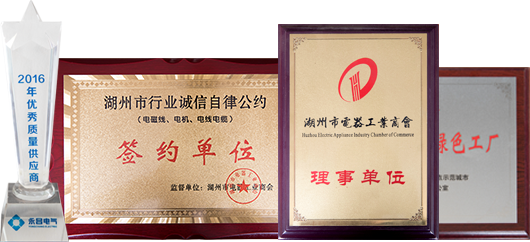Selecting the appropriate diameter range of EI/AIW (QZYL/XYL) Polyamide Imide Composite Polyester Imide Enameled Aluminum Round Wire for specific winding applications involves several important considerations. The choice of wire diameter can impact the electrical and thermal performance, mechanical properties, and suitability for the intended application. Here are some key considerations:
Current-Carrying Capacity: The wire diameter affects the current-carrying capacity of the wire. Thicker wires can carry higher currents without excessive heating. Ensure that the selected diameter can handle the expected current loads in the application without overheating.
Voltage Requirements: Consider the voltage requirements of the application. Larger diameter wires may be necessary to meet voltage insulation requirements and prevent electrical breakdown or arcing.
Space Constraints: Evaluate the available space for winding the wire. Thicker wires occupy more space, so ensure that the chosen diameter fits within the available winding area and doesn't lead to overcrowding.
Thermal Requirements: The wire's diameter can impact its thermal performance. Thicker wires generally dissipate heat more effectively, which can be advantageous in applications where heat generation is a concern. Consider the application's thermal requirements and choose a diameter that can handle the expected temperature rise.
EI/AIW (QZYL/XYL) Polyamide Imide Composite Polyester Imide Enameled Aluminum Round Wire offers several unique properties and advantages compared to traditional enamelled wires in various industrial applications:
Enhanced Thermal Performance: The combination of Polyamide Imide (AIW/XYL) and Polyester Imide (QZYL) insulations creates a composite wire with exceptional thermal performance. It can withstand high temperatures, making it suitable for applications where traditional enamelled wires may degrade or fail.
High Thermal Class Rating: EI/AIW (QZYL/XYL) wire often has a high thermal class rating, such as 220°C or higher. This allows it to operate continuously at elevated temperatures without compromising its electrical or mechanical properties, making it ideal for demanding industrial environments.
Superior Chemical Resistance: The Polyamide Imide component of the insulation provides excellent resistance to chemicals, solvents, and oils. This feature is beneficial in applications where the wire may be exposed to harsh chemical environments.
Improved Abrasion Resistance: The composite insulation offers enhanced abrasion resistance compared to traditional enamelled wires. This property is valuable in applications where the wire may experience mechanical wear or friction.



